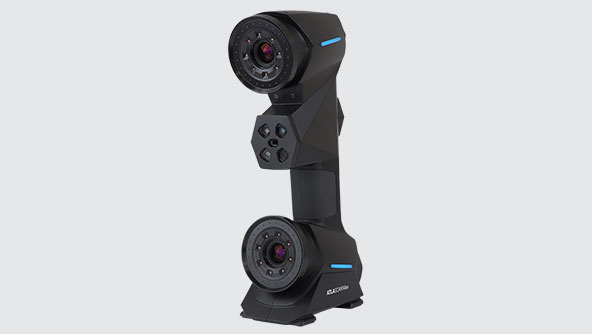Creality 3D Printer, K1 SE Fully Assembled Auto Leveling FDM 3D Printers for Kids and Beginners, 600mm/s Max High-Speed Printing, Core XY All Metal Structure, Larger Print Size 250x220x220mm
$329.00 (as of June 13, 2025 22:30 GMT +00:00 - More info)Have you ever wondered about the intricate world of patent litigation, especially in the booming 3D printing industry? If so, you’re in for a treat! Today, we’ll be digging into the fascinating case of “Stratasys Files Patent Infringement Lawsuit Against Bambu Lab.”

$30 off $400+ Anycubic Products with code AC30OFF
The Players: Stratasys and Bambu Lab
Who is Stratasys?
Stratasys, founded in 1988, is a stalwart in the world of 3D printing technology. The company is renowned for its pioneering work in filament material extrusion, also known as FDM (Fused Deposition Modeling). This technology has been the cornerstone of many innovations in the field. Over the years, Stratasys has amassed a slew of patents that cover various aspects of 3D printing, from heated build platforms to force detection mechanisms.
Who is Bambu Lab?
Bambu Lab, on the other hand, is a relatively newer entrant but no less formidable. The company has been making waves with its cutting-edge 3D printers, such as the X1C, X1E, P1S, P1P, A1, and A1 mini. These machines have been lauded for their advanced features and affordability, quickly gaining market share and generating significant revenues.
The Crux of the Lawsuit
Why the Eastern District of Texas?
Stratasys has chosen to file the lawsuit in the Eastern District of Texas, Marshall Division. This jurisdiction is well-known for its meticulous handling of intellectual property cases, making it an ideal venue for such a complex dispute. The court has jurisdiction due to the substantial business activities of Bambu Lab within the district, including sales and distribution.
The Allegations
Stratasys alleges that Bambu Lab has infringed upon multiple patents they hold. These patents are not just any patents; they cover crucial elements of 3D printing technology. Here’s a quick rundown:
- U.S. Patent No. 9,421,713: Methods for additive manufacturing using purge towers.
- U.S. Patent No. 9,592,660: Heated build platforms in 3D printing.
- U.S. Patent No. 7,555,357: Extrusion-based layered deposition systems.
- U.S. Patent No. 9,168,698: Force detection in 3D printing.
- U.S. Patent No. 10,556,381: Additional aspects of force detection during fabrication.
The Specifics
The complaint outlines that Bambu Lab’s products directly and indirectly utilize technologies covered by these patents without authorization. For instance, the heated build platforms and purge towers in Bambu Lab’s machines are allegedly integral to the patented processes and methods owned by Stratasys.
What Does Stratasys Want?
Stratasys is seeking multiple forms of relief, including:
- A declaration that Bambu Lab has infringed upon their patents.
- Damages for the infringement, including enhanced damages for willful infringement.
- A permanent injunction to prevent further infringement.
- Attorneys’ fees and other associated costs.
The Stakes and Implications
Financial and Market Impact
The lawsuit emphasizes that the alleged infringement has caused significant damage to Stratasys in terms of lost revenue and harm to its market position. With Bambu Lab generating significant revenues from its 3D printers, the financial stakes are incredibly high.
Industry-Wide Consequences
This case is being closely watched by stakeholders and legal experts alike. If Stratasys prevails, the outcome could have far-reaching implications:
- Patent Enforcement: It could set a precedent for the enforcement of patents in the 3D printing industry.
- Market Dynamics: The operations of Bambu Lab in the U.S. market could be significantly curtailed.
- Innovation and Competition: The case could influence how companies navigate the intellectual property landscape, affecting innovation and competition.

Buy Photon Mono M5 Get Free 1KG Resin
Historical Context
A Déjà Vu Moment?
This lawsuit evokes memories of a similar case between 3D Systems and Formlabs over SLA (Stereolithography Apparatus) technology. That case was resolved with Formlabs agreeing to pay royalties to 3D Systems for each machine sold. The similarities between these cases highlight the ongoing challenges in protecting intellectual property in a rapidly evolving industry.
A Rich Legacy
Since its founding, Stratasys has been at the forefront of 3D printing technology. The company’s rich patent portfolio is a testament to its commitment to innovation. However, the slow market growth and stock performance have put additional pressure on Stratasys to protect its intellectual property aggressively.
Legal Nuances
Direct vs. Indirect Infringement
The lawsuit claims both direct and indirect infringement. Direct infringement occurs when a party makes, uses, or sells a patented invention without permission. Indirect infringement, however, involves aiding or encouraging another party to infringe a patent, or importing an infringing product into the U.S.
Enhanced Damages
Stratasys is also seeking enhanced damages for willful infringement. In patent law, willful infringement can result in damages being tripled. This is a significant risk for Bambu Lab, further elevating the stakes of this lawsuit.
What Happens Next?
Jury Trial
Stratasys has demanded a jury trial, which could be a lengthy and costly process. However, it also offers a shot at substantial damages and a permanent injunction against Bambu Lab’s products.
Public Scrutiny
As the case progresses, it will continue to attract attention from industry stakeholders, investors, and legal experts. The court documents and filings will be publicly accessible, allowing for ongoing scrutiny.
Potential Outcomes
- Settlement: Both parties could reach a settlement, potentially involving financial compensation and licensing agreements.
- Court Victory: A win for Stratasys could result in significant financial compensation and a court order to stop Bambu Lab from selling the infringing products.
- Appeals: Regardless of the outcome, it’s likely that the losing party will appeal, extending the legal battle.
Broader Implications
If successful, Stratasys could set a new benchmark in protecting technological innovations in the 3D printing industry. This could lead to stricter enforcement of patents, encouraging companies to invest more in developing unique technologies rather than leveraging existing ones unlawfully.
Understanding the Patents
Purge Towers (U.S. Patent No. 9,421,713)
Purge towers are structures built during the 3D printing process to purge the nozzle of old material before a new material is extruded. This ensures cleaner transitions between materials, improving the quality of the final print.
| Patent Feature | Importance |
|---|---|
| Purge Towers | Ensures smooth material transitions |
Heated Build Platforms (U.S. Patent No. 9,592,660)
Heated build platforms maintain an optimal temperature during the printing process. This helps in reducing warping and enhances the adhesion of the first layer.
| Patent Feature | Importance |
|---|---|
| Heated Build Platforms | Reduces warping, improves adhesion |
Extrusion-Based Layered Deposition Systems (U.S. Patent No. 7,555,357)
This patent covers methods and systems for extruding materials layer by layer to create a 3D object. It is one of the foundational technologies in FDM 3D printing.
| Patent Feature | Importance |
|---|---|
| Layered Deposition Systems | Foundational technology for FDM |
Force Detection (U.S. Patent No. 9,168,698 and No. 10,556,381)
These patents cover mechanisms to detect force during the printing process. Force detection is crucial for adjusting printer parameters in real-time to ensure print quality and consistency.
| Patent Feature | Importance |
|---|---|
| Force Detection | Ensures real-time adjustments, enhances print quality and consistency |
Industry Reactions
Stakeholders’ Perspectives
- Investors: Investors in both Stratasys and Bambu Lab are keenly watching the developments, as the lawsuit could significantly impact the financials and market positioning of the companies.
- Competitors: Other companies in the 3D printing industry are observing the case for any new precedents that could affect their own operations and patent strategies.
Legal Experts
Legal experts are analyzing the strategies employed by both parties. The choice of the Eastern District of Texas, known for its robust IP litigation framework, and the detailed list of alleged infringements make this a compelling case.
Conclusion
The lawsuit filed by Stratasys against Bambu Lab is more than just a legal battle; it’s a pivotal moment for the 3D printing industry. The outcome could reshape the landscape, influencing how companies approach innovation, competition, and intellectual property.
As this case progresses, it will offer valuable insights into the complexities of patent law and its implications for high-tech industries. Whether you’re an industry stakeholder, a legal expert, or simply someone fascinated by the world of 3D printing, this lawsuit is a story worth following.
Stay tuned, as the courtroom drama unfolds, potentially setting new standards for patent enforcement and technological innovation in the 3D printing industry.
$30 off $400+ Anycubic Products with code AC30OFF








